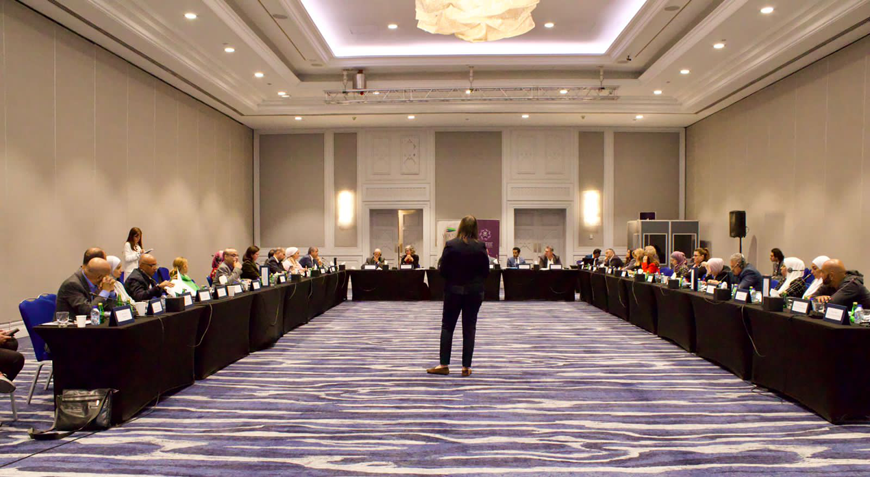AMMAN — Under the patronage of HRH Prince Hassan, a high-level roundtable discussion between the West Asia-North Africa (WANA) Institute, the Inter-Islamic Network in Water Resources Development and Management (INWRDAM) and the German Institute of Development and sustainability (IDOS) was held on Thursday to highlight recent research findings on natural resource governance.
According to a statement made available to The Jordan Times, this project explores the competition for available groundwater in Jordan’s Azraq region as a starting point to assess natural resource governance in light of the 2030 Agenda. The 2030 Agenda, with its 17 Sustainable Development Goals (SDGs), is built on five core principles: Universality, leave no one behind, interconnectedness and indivisibility, multi-stakeholder partnerships and inclusivity.
An integrated implementation of the agenda, guided by these principles, remains challenging and requires the mobilisation of synergies and the mitigation of trade-offs between economic, social and ecological dimensions of sustainable development. Yet, through a Global Vision for 2030, the project aims to present a way forward to achieve good governance, the statement said.
Ines Dombrowsky, head of environmental governance at IDOS, said that the project aims to understand factors that influence the decisions and actions of different groundwater users and the conditions under which they farm. Opportunities were identified for improving natural resource governance in the light of the 2030 Agenda. Methodologically, this study deploys an iterative mixed-method approach using social network analysis, semi-structured interviews and focus groups to answer research questions. Additionally, to ensure local community engagement at all levels and to validate findings, a focus group meeting was conducted with selected farmers, and a roundtable meeting was held with the participation governmental entities and donor agencies, the statement said.
Majd Al Naber, head of the Sustainable Development department at the WANA Institute, said that Azraq was selected as a case study due to the numerous water needs that compete for limited groundwater, which include agricultural, domestic and environmental uses (wetland). Therefore, he said, better managing groundwater means investigating the decisions and behaviour of various stakeholders. To map this complexity and to advance governance in light of the 2030 Agenda’s principles, the study deploys a two-step approach. First, the study is to map out the institutional factors that influence decisions of groundwater users, and then conduct an analysis of how far the agenda´s core principles are reflected in Azraq´s groundwater governance, the statement said.
